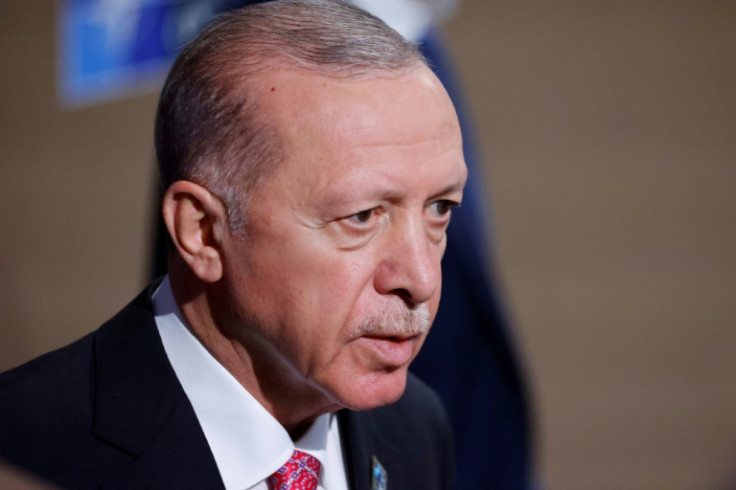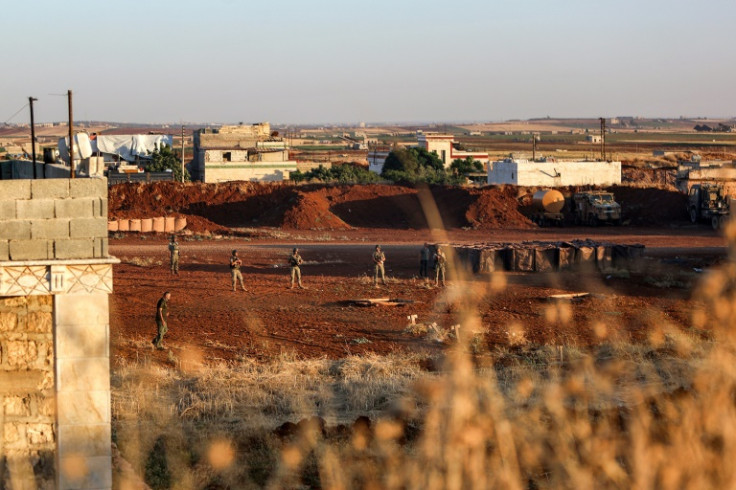
Turkey's President Recep Tayyip Erdogan on Saturday announced the imminent end of his government's operations against Kurdish PKK fighters in northern Iraq and Syria.
Turkey began its Operation Claw-Lock in April 2022, claiming it nneded to secure its border with northern Iraq, from where it accused Kurdish separatists of launching attacks on Turkish territory.
"We will very soon complete the lockdown of the area of operation in northern Iraq," Erdogan said, adding that Kurdish forces were now "incapable of acting inside our borders".
Erdogan said that the Kurdistan Workers Party (PKK) had been "completely trapped" in both Iraq and Syria, telling young military academy graduates that Turkish forces were "all over them".
"We will complete the missing points of the security corridor along our southern border with Syria."
Erdogan's comments tally with those made earlier this week by Turkey's Defence Minister Yasar Guler, who said his country was "determined" to clear the border area with Iraq and neighbouring Syria of "terrorists".
Turkey has a long history of tensions with Kurdish separatists, and has often launched operations in neighbouring countries to fight rebels it says are holed-up there.
Within Turkey, the PKK has been involved in an on-off armed insurgency since 1984.
Founded in 1978, the Marxist-inspired group is regarded as a terror organisation by Turkey and most of its Western allies, including the United States and European Union.
It also has a presence in northern Iraq, as does Turkey, which has operated against the Kurdish group from several dozen military bases there.
Turkey's incursions into Iraq have frequently strained bilateral ties and caused occasional frictions with its Western partners.
On Wednesday, Iraq denounced fresh incursions by the Turkish army into its territory in the autonomous Kurdistan region, urging Ankara to resolve security issues diplomatically.
In recent weeks, Iraqi local media have reported an increase in Turkish strikes, sparking several fires in border areas. Some reports mentioned Turkish forces establishing new positions.
On Friday, the Turkish defence ministry announced that one soldier had been killed and another wounded by an improvised explosive device in northern Iraq, blaming Kurdish militants.
That said, there have been signs of growing rapprochement in recent months.
In March, following a diplomatic visit, Baghdad quietly listed the PKK as a "banned organisation" -- although Ankara still demands Iraq does more to fight against the militant group.
And in April, Erdogan made his first visit to Iraq since 2011, where he called on Baghdad to rid itself of "all forms of terrorism".
Since 2016, Ankara has likewise carried out successive ground operations to expel Kurdish forces from border areas of northern Syria, along with Islamic State group jihadists.
Pro-Turkish forces in Syria now control two vast strips of territory along the border.
After originally aiming to topple the government of Syrian leader Bashar al-Assad, Ankara has recently shifted focus to preventing what Erdogan dubbed a "terror corridor" opening up in northern Syria.
On July 7, the Turkish leader even suggested he might invite Assad to Turkey "at any moment", offering an olive branch after the 2011 war severed ties between Ankara and Damascus.
But after Erdogan's intervention, Syrian diplomats made clear that any normalisation of ties would depend on Ankara withdrawing troops from its territory.
Any bid to restore ties between Syria and Turkey "must be built on clear foundations that ensure the desired result," the foreign ministry in Damascus said on Saturday.
"Foremost of which is the withdrawal of illegally present forces from Syrian territory."









